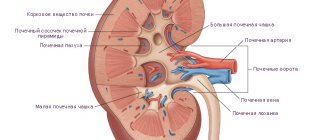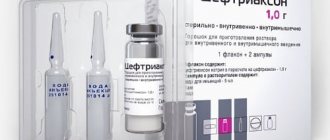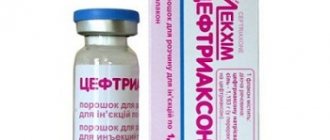When infectious inflammation of the kidneys occurs, the patient is recommended drugs that kill pathogenic microbes. In this case, uroseptics are successfully used for pyelonephritis. They help not only get rid of bacteria, but also relieve the inflammatory process that microorganisms cause.
A newly diagnosed disease (pyelonephritis) most often occurs in an acute form - it requires timely and adequate treatment, otherwise the inflammation becomes chronic.
After this, the patient has to carry out constant prevention and therapy with each exacerbation. Timely initiation of urinary antiseptics can prevent chronicity of the disease.
general information
Uroseptics are medications that suppress the action of infectious agents in the bladder, kidneys, ureters, and renal pelvis. All antibacterial agents in this group kill dangerous bacteria, process and remove toxins along with urine.
All uroseptics have minimal metabolism in the body to maintain maximum therapeutic effects while removing harmful substances from the body. The main difference from other names is the manifestation of antibacterial activity at all stages: from the use of tablets/drops, injections to the removal of drugs during bladder emptying.
There are two types of uroseptics:
- synthetic;
- vegetable.
Drugs of the first group (chemical) are more effective, exhibit noticeable antibacterial activity, and help with severe forms of the inflammatory process. Compositions with natural ingredients: natural oils, plant extracts act “softer”, but are effective only for mild to moderate cystitis, pyelonephritis, urolithiasis, or as part of complex therapy.
The choice of uroseptic is the task of a nephrologist or urologist. Before prescribing a medicine, a test for the sensitivity of microflora to certain anti-inflammatory drugs is required.
What is kidney urography and how is the procedure performed? Read useful information.
Learn about the rules for treating chronic pyelonephritis at home from this article.
List of frequently used tools
There is a common list of uroseptics that are most often prescribed in clinical practice for pyelonephritis:
- broad-spectrum penicillins (ampicillin, amoxicillin, oxacillin);
- fluoroquinolones (ciprofloxacin, ofloxacin, norfloxacin);
- sulfonamides (biseptol, streptocide);
- nitrofuran derivatives (furadonin);
- phosphonic acid derivatives (monural);
- herbal preparations (phytolysin);
- cephalosporins (ceftriaxone, cefaclor);
- glycopeptides (vancomycin).
Typically, the course of treatment with antibacterial agents for uncomplicated acute pyelonephritis takes approximately three to ten days. If necessary, it can be extended, but only under the supervision of a doctor.
Mandatory prevention of exacerbation of chronic inflammation of kidney tissue should be carried out during transition periods: in the fall and autumn, as well as at the height of the epidemic of colds. It consists of taking a short course of certain uroseptics (antibiotics, antibacterial agents and herbal preparations).
Indications for use
Herbal and synthetic uroseptics are prescribed to relieve inflammation in the organs of the urinary system. When selecting a medicine, the doctor takes into account the severity of the pathology, the nature of the disease, the type of pathogenic microflora, the general condition of the patient, contraindications, and age.
Uroseptics are effective in treating:
- cystitis;
- urolithiasis;
- pyelonephritis;
- urethritis;
- pyelitis;
- urosepsis.
On a note! Antibacterial compounds are prescribed to prevent infection during diagnosis (cystoscopy of the bladder) or urological operations.
What is the treatment based on?
Uroseptics for pyelonephritis are prescribed immediately when the disease is detected. They may differ in type depending on the condition, age and presence of concomitant diseases of the patient. It mainly affects the renal pelvis, as well as the parenchyma.
If there are acute symptoms (lower back pain, difficulty with urine excretion, etc.), the patient may be diagnosed with acute pyelonephritis. In this case, treatment should be carried out immediately, preventing the disease from becoming chronic.
After diagnosis, the doctor prescribes painkillers to relieve the painful manifestations of the disease.
The main goals of therapy are:
- elimination of the cause (infections, inflammation, the influence of diseases from adjacent organs, etc.);
- normalization of the natural unhindered outflow of urine;
- relapse prevention;
- excluding certain foods from the diet that interfere with or complicate treatment. Some types of food can significantly increase blood pressure, which affects the nature of the disease.
Uroseptics are a group of drugs that eliminate inflammatory processes caused by bacteria and viruses. They are needed to restore normal kidney function, prevent the development of complications and sepsis, which occurs in a third of a hundred who seek help.
In addition, the drugs help support the kidneys for preventive purposes. Long-term use of uroseptic agents is recommended for effective treatment and prevention of recurrent signs of the disease.
Contraindications
Each type of medicine has its own restrictions for use. Particular attention to contraindications – in elderly patients and pregnant women. Not all medications are suitable for infants. Herbal preparations have fewer restrictions than synthetic formulations.
Main contraindications:
- children's age (be sure to check the details in the instructions);
- allergy to the components of the drug: antibiotics (especially penicillins) and sulfonamides often provoke severe reactions;
- pregnancy, lactation period;
- bleeding;
- severe heart disease;
- ulcerative lesions of the gastrointestinal tract;
- deficiency of certain enzymes involved in the processing of active substances.
Functions
The effect of uroantiseptic drugs is aimed at:
- Reducing the number of relapses.
- Minimizing the likelihood of complications.
- Preventing the spread of the inflammatory reaction to nearby tissues and organs.
- Elimination of the process of inflammation in the affected organ.
- Destruction of the pathogen that provoked the pathology.
In addition, herbal uroantiseptics are actively used for the subsequent prevention of pathologies of the genitourinary system in chronic pathologies in women during pregnancy.
List and characteristics of drugs
Which drug to choose: synthetic or with plant extracts? The doctor takes into account many indicators, prescribes tests, and then recommends an anti-inflammatory drug.
The pharmaceutical industry offers many synthetic drugs with high antimicrobial activity. In pharmacies you can also purchase medicines based on phytoextracts and natural oils. With a mild degree of inflammation, some types of medicinal herbs help.
Uroseptics of plant origin
Herbal medicines:
- Urolesan. Complex of natural components, essential oils. Pharmacies receive syrup (for children), drops and capsules of the herbal medicine. Urolesan reduces inflammation and inhibits the viability of pathogenic microorganisms. Herbal components reduce burning in the urethra and reduce pain. Quick effect after administration, mild diuretic effect.
- Canephron. An effective herbal preparation based on extracts of rosemary, lovage, centaury. The drug enhances the activity of antibacterial agents. According to indications, Canephron in the form of tablets and drops is prescribed during pregnancy (only with the approval of a gynecologist). Tablets are suitable for children only from the age of six.
- Phytolysin. The paste for oral administration contains parsley root, horsetail, birch leaf, and knotweed herb. With use, the frequency and strength of spasms decreases, inflammation decreases, and infectious agents reduce activity. The herbal remedy is suitable for patients over 18 years of age.
Medicinal herbs with diuretic, anti-inflammatory effects:
- lingonberry berries and leaves;
- bearberry leaves;
- corn silk;
- cranberries;
- knotweed;
- birch leaves;
- horsetail.
Important! Herbs and herbs should not be used without the approval of the composition by the attending physician. Some plants have contraindications for use in cases of peptic ulcers, heart problems, gallstones, and liver pathologies. Take special care when consuming natural uroseptics with a sour taste: cranberries, lingonberries due to their active choleretic effect.
Chemical uroseptics
Main series of antibiotics:
- Cephalosporins. Effective compositions with active bactericidal action. One of the advantages is application for two weeks. Injections of the drug Cefalotin are prescribed.
- Penicillins. The names are suitable for pregnant women and children with pyelonephritis, cystitis, and urogenital infections. The negative point is the high risk of allergic reactions. Carbenicillin, Ampicillin.
- Fluoroquinolones. The best option for detecting Escherichia coli, streptococci, Enterobacter, and staphylococcus. In severe forms of the disease, injections are performed. Until the age of 18, fluoroquinolones are not prescribed for urological pathologies and other types of inflammatory diseases. Ciprofloxacin, Norfloxacin.
- Glycoproteins. Effective formulations for intravenous administration. Chloramphenicol, Vancomycin.
- Macrolides. New generation medicines with active antimicrobial action. The drug Erythromycin is prescribed in tablets or for intravenous injection, based on the severity of the disease.
Sulfonamides:
- Biseptol.
- Nitroxoline.
- Nalidixic acid in the preparations Negram, Nevigramon.
- Tsinobak, Gramurin with oxolinic acid.
Find out about the benefits of kidney tea during pregnancy and the nuances of using a medicinal drink.
The treatment of urolithiasis in men using a special diet is written on this page.
Go to https://vseopochkah.com/diagnostika/analizy/mocha-po-zimnitskomu.html and read about where and how to take a urine test according to Zimnitsky.
Nitrofuran derivatives kill not only bacteria, but also fungal microflora:
- Furazolidone.
- Furacilin.
- Nifurtoinol.
- McMiror.
- Nitrofurantoin.
- Furagin.
- Furadonin.
Other types of uroseptics:
- Triprim, Trimopan based on trimetroprim.
- Uroflux based on methenamine.
The use of uroseptics for pyelonephritis
An uncomplicated infection - limited to the bladder and urethra - can be treated with herbal remedies. If there is an increased risk of complications - in people with a weakened immune system or with damaged kidneys - antibiotic therapy is recommended. Anatomical features of the urinary tract may also complicate treatment.
Purposes and indications
Previously, only one dose of antibiotics was usually used to relieve symptoms. Although a single dose can quickly eliminate signs of pathology, surviving bacteria often cause relapse. Currently, inflammation is treated either for three days or more than 7 days.
To answer the question of whether three-day short-term therapy is better than long-term antibiotic consumption, scientists from the Cochrane Collaboration assessed a total of 32 studies involving more than 9,600 women. From the analysis, experts made several conclusions that could help in choosing therapy.
The first finding is that three days of treatment will be sufficient for most women with uncomplicated pyelonephritis to relieve symptoms. Long-term use of antibiotics did not help, but caused side effects such as gastrointestinal disorders or rashes.
Another difference was found when examining urine samples from patients; in the acute phase of pyelonephritis, bacteria are found in the urine. After five days of therapy, the urine of almost all women did not contain pathogenic microorganisms. After three days of treatment, pathogens were detected in almost all participants.
Advice! When deciding on the duration of therapy, the question is whether the woman is at risk of relapse or side effects. Patients with concomitant diseases should undergo five days of treatment. If you need to avoid adverse actions, it is recommended to limit yourself to three days.
Therapeutic effect
Uroseptics can reduce the symptoms of inflammation in the bladder and eliminate bacterial invasions. This was confirmed by studies in which one group of participants received antibiotics and the other a placebo. In the clinical trial, patients were treated for about 1-7 days. At the end of treatment, which lasted between one and seven days, an average of 62 out of 100 women no longer had any symptoms. In contrast, only 26 out of 100 people who took the dummy drug were relieved of their condition at the same time.
Admission restrictions
Uroseptics for severe pyelonephritis should not be taken in case of decompensated renal failure, systemic infectious or cardiovascular diseases. Before use, you should consult your doctor.
Adverse reactions
Some women experience side effects when taking antibiotics. These include gastrointestinal problems - nausea and diarrhea - headache, rash and itching. Rare complications include liver damage, complete loss of vision, hearing, or renal dysfunction.
Groups of drugs used
A research group from the international organization Cochrane Collaboration tried to find out how effective various antibiotics are for pyelonephritis. She summarized all the relevant research materials in a so-called “systematic review”.
All of the remedies tested relieve symptoms in a similar manner. This applies not only to classical antibiotics, but also to drugs from the quinolone group. They are among the antimicrobial agents, but act somewhat differently.
List of groups of uroseptic drugs used for pyelonephritis:
- penicillins;
- beta-lactams;
- quinolone derivatives;
- naphthyridine derivatives;
- aminoglycosides.
The choice of drug depends on the associated complications, risk factors and diseases of the patient. Broad-spectrum antibiotics - beta-lactams or aminoglycosides - are always prescribed first.
Medicines for children and pregnant women
Uroseptics are used in young children and pregnant women after carefully weighing the risks and benefits. It is preferable to prescribe amoxicillin, which does not affect the process of bearing a child.
In acute cystitis or pyelonephritis, burning pain can be relieved by painkillers.
Attention! Medicines with an analgesic effect are prohibited from being used for more than 3-4 days without consulting a doctor. In the chronic form of the disease, medications can be taken only after discussion with the doctor.
Plant uroseptics
More than half of all women suffer from pyelonephritis at least once in their lives. Inflammation of the renal pelvis is often accompanied by a burning sensation when urinating and significant pain.
With recurrent pyelonephritis, some women try to prevent the onset of the disease with cranberry products. The herbal remedy is sold in pharmacies in the form of juices, syrups, powders, capsules and tablets. According to naturopaths, the juice prevents or even cures infections.
How cranberry products work is unclear. The plant is known to contain proanthocyanidins (PAN); substances prevent bacteria from “sticking” to the wall of the bladder.
Scientists from the Cochrane Collaboration examined whether cranberry products could prevent further infections in people with recurrent pyelonephritis. To this end, experts analyzed all relevant studies on this issue and summarized them in a systematic review.
The research team assessed 24 trials involving a total of about 4,500 people - mostly women. Most of them examined whether cranberry products were better at preventing new bladder infections than a placebo.
Various forms of release were investigated - juice, tablets or capsules. The target group took one serving of cranberry juice daily, and the control group took an equal number of dummy capsules. Most trials did not indicate how much proanthocyanidins were in the foods.
An evaluation of the studies found that bladder infections were equally common among all participants - regardless of whether they received cranberry products or placebo drugs. A clinically insignificant preventive effect was detected.
It is recommended to drink plenty of water or tea to flush out bacteria from the bladder. Heat (such as a hot water bottle, blanket, or bath) can also be used to relieve pain and relax. However, there is no research on how effective these home remedies are.
Numerous herbal remedies are available in the pharmaceutical market to help reduce symptoms. List of main herbal medicines:
- Diuretic herbal remedies - birch leaves, horsetail or nettle.
- Preparations with pumpkin, cranberry or lingonberry leaves, which should have an anti-inflammatory effect.
However, none of these plants have been studied for UTI. This also applies to homeopathic remedies and traditional Chinese medicines. Some may even be harmful if used long term. A small proportion of these substances are available by prescription.
For women with recurrent pyelonephritis, bladder irrigation is also suggested to prevent bacterial sedimentation. Whether such methods are useful has not been studied enough.
Properties of bearberry
Bearberry is an antiseptic that quickly reaches the bladder. The clinical effect was proven in a large randomized trial. The medicinal plant is taken orally - in the form of tea or tablets with a concentrated extract. Bearberry should not be used for a long time as it can cause urinary tract irritation. Infants, patients with diabetes, and pregnant women are too sensitive to the plant and should not take it.
It is important to know! There are detailed laboratory tests and medical observations that confirm the antimicrobial activity of the plant against a range of bacteria in inflammatory diseases of the urinary tract.
It is necessary to take a sufficient amount of the active ingredient (400 to 700 mg of arbutin). You also need your urine to be alkaline; this can be achieved through a plant-rich diet.
Glycoside arbutin is the active substance in bearberry, which is ineffective in local form. In metabolism, the element is converted (hydrolyzed) into hydroquinone. The effectiveness of the organic compound has been proven in laboratory tests on bacteria and fungi. Hydroquinone has a uroseptic effect on the mucous membranes of the urinary tract.
Tannins have an astringent, anti-inflammatory and antimicrobial effect. Bearberry preparations are also effective against Citrobacter, Enterobacter, Enterococcus coli, Klebsiella, Proteus, Pseudomonas and Staphylococcus species.
Bearberry is often combined with other herbs for pyelonephritis. Concentrated extract tablets are also available on the market. Products in which tannins have been removed are better tolerated.
As a single dose, 3 g of the dried plant (mixed with hot water) or preparations containing 100-210 mg of hydroquinone are used. The maximum daily dose should not exceed 12 g of dried leaves (or 400-840 mg of hydroquinones).
Features of lingonberry treatment
According to folk medicine, lingonberries “strengthen” the immune system. They are used to treat diabetes mellitus, acute inflammation of the respiratory tract, kidneys, bladder, joints and other infections.
The total organic acid content in berries is about 2.5%, and the sugar concentration is 8-9%. Lingonberries contain polyphenolic compounds and minerals. Manganese is an important chemical element for enzymes involved in the metabolism of energy, protein and cholesterol. Proanthocyanidin inhibits the adhesion of harmful substances in mucous membranes.
The leaf components contain arbutin. Tea or preserves made from the plant are used in folk medicine to improve urine flow. Lingonberry is not effective in the treatment of bacterial pyelonephritis, either in oral or topical form.
Medicines for children
Many potent drugs with an active antimicrobial effect are prohibited for use by children under 1 year of age. It is easier for older children to choose a uroseptic, but it is important to carefully read the instructions for synthetic drugs to reduce the risk of side effects: there are many restrictions on use.
Children are prescribed the following plant-based names:
- Canephron tablets - from 6 years.
- Urolesan syrup – from 1 year.
Antibiotics for children with cystitis, pyelonephritis:
- Augmentin.
- Ampicillin.
- Carbopenicillin.
- Cephalosporins.
- Ampiox.
Just like adults, children are prescribed urine culture to test the sensitivity of pathogenic microorganisms to antibiotics. To increase the effectiveness of therapy, the drug is changed every 7 days. If the effectiveness of antibiotics is low, stronger drugs are prescribed - aminoglycosides. This group of medications is not suitable for children of the first year of life.
Types and forms of uroseptics
The range of pharmaceutical forms of uroseptics is wide: these are tablets, syrups, drops, solutions and powders for injection. There are two types of origin:
- Vegetable. They contain exclusively natural (usually herbal) raw materials. However, this is the downside - the drugs are effective only in the initial stages of the disease or as an addition to the main therapy.
- Synthetic. They are distinguished by their high efficiency, which is why these uroseptics are prescribed for cystitis, urethritis, severe forms of pyelonephritis, urolithiasis, prostatitis and other similar diseases.
Use in urology
When diagnosing diseases of urological origin, a drug such as chloramphenicol is most often used; it has a negative effect on gram-negative and gram-positive microorganisms.
To completely destroy pathogenic bacteria, it is enough to undergo a week-long course of treatment.
Nolicin is considered no less effective; it belongs to the fluoroquinolone derivatives.
Its use in the acute phase of the disease is considered justified; it is then that it manifests its properties as clearly as possible. It can also be used for chronic diseases.
Monural is a strong antibacterial drug. To eliminate the manifestations of the pathological process, it is enough to take the medicine once a day.
Its main characteristic feature is that it has a detrimental effect on almost all pathogens and can be prescribed to children.
One of the most reliable drugs used in urology is Nitroxoline. It has a negative effect not only on microorganisms sensitive to it, but also on fungi of the genus Candida.
It is necessary to be treated with the drug for a long time, up to three weeks. Indications for its use are:
- pyelonephritis;
- cystitis;
- epididymitis.
Nitroxoline must be used several times.
Tips for choosing
The choice of medications should be entrusted to a specialist; self-medication is unacceptable. When determining a medicine from nitrofurans, sulfonamides, antibacterial agents, it is necessary to determine how sensitive the infectious agent will be.
Not all drugs are effective; bacteria have developed immunity to some. Bacterial culture helps to find out what is coping with the infection. The laboratory technician inoculates the urine onto a favorable medium to identify the pathogen. In addition to this analysis, the doctor gives a referral for a urine pH test.
If the analysis reveals several types of pathogens, the specialist will prescribe a combination of drugs that act against all microbes. Treatment of the urinary system for inflammation is carried out with nitrofurans, antibiotics, and sulfonamides. Such drugs stop pathogenic microorganisms that are excreted by the kidneys in the urine.
Uroseptics are an excellent help to cope with pyelonephritis, if treatment is started on time and the drugs are prescribed correctly. Regular consultation with a doctor will allow you to identify problems in the early stages, when they can be quickly treated.
Drugs that improve blood flow to the kidneys
Blood supply to the kidneys is an important factor in the treatment of pyelonephritis. Adequate blood flow in the organ allows immune cells to enter the site of infection and begin to fight the pathogen.
Good blood supply to the kidneys prevents bacteria from quickly spreading into the tissue of the pelvis and calyces. In addition, with good blood saturation, it is much easier for other medications to reach the site of inflammation.
The drugs have a relaxing effect on the muscular lining of blood vessels.
Normal renal blood flow is the key to success in the treatment of pyelonephritis
Drugs that improve renal blood flow - table
| Drug name | Active substance | Release form | Indications | Contraindications | Permissible age for prescribing the drug | Price |
| Pentoxifylline | Pentoxifylline |
| Peripheral circulation disorder |
| 18 years | From 65 rubles |
| Trental | Pentoxifylline | Pills | Peripheral circulation disorder |
| 18 years | From 500 rubles |
| Chime | Dipyridamole | Pills | Peripheral circulation disorder |
| 12 years | From 532 rubles |
| Troxerutin | Troxerutin | Pills | Peripheral circulation disorder |
| 15 years | From 154 rubles |
Drugs that normalize renal blood flow - photo gallery
Pentoxifylline relaxes the muscular lining of blood vessels
Trental improves renal blood flow
Curantil contains the active substance dipyridamole
Troxerutin has a beneficial effect on the walls of blood vessels
Synthetic drugs
This large group of chemical medicines is highly effective, but there is also a drawback - the likelihood of a severe allergic reaction. Synthetic and semi-synthetic uroseptic drugs are classified according to their active components. They are prescribed to quickly suppress the growth of pathogenic microflora.
Penicillins
Despite the relative safety and versatility of this group of drugs, it has a significant disadvantage. Microorganisms, mutating, have learned to develop immunity.
To prescribe uroseptics from penicillins, a thorough diagnosis, including urine culture, is necessary. If the pathogen shows sensitivity to them during tests, therapy will be successful.
The large group of uroseptic penicillins includes:
- Amoxicillin - tablets, injection suspension, capsules. The drug is characterized by rapid action and a wide range of applications. Amoxicillin is prescribed for urethritis and pyelonephritis.
- Ampicillin - tablets, powder. It is a semi-synthetic antibiotic and has an antibacterial and bactericidal effect. It is used for many acute and chronic infections of the urinary system.
- Oxacillin - tablets, capsules, powder. The main advantages of uroseptic are the slow development of bacterial immunity and rapid effect. The drug is prescribed for pyelitis, cystitis.
List of uroantiseptic drugs
Uroantiseptic drugs should be prescribed exclusively by a specialist who takes into account the characteristics of the disease and the severity of the pathology. It is important to note that many drugs in this group are effective in treating conditions of all degrees of severity.
For the treatment of pyelonephritis and urethritis, the use of the following drugs is indicated:
- "Norfloxacin". It is a widely used fluoroquinolone drug and is an antibacterial agent. In accordance with the manufacturer's instructions, the medication should be used twice a day, 800 mg, and the drug is administered intramuscularly. A distinctive feature of Norfloxacin is the absence of negative effects on the digestive organs.
- "Cefalothin". Refers to cephalosporin antibiotics. Administration is carried out intramuscularly twice a day, a single dosage is two grams, and the duration of therapy should not exceed 10 days. The drug is characterized by a pronounced negative effect on the mucous membranes of the gastrointestinal tract, which provokes diarrhea and nausea.
- "Ampicillin." It is an antibacterial drug of the penicillin series. The medicine has been used in clinical practice for quite a long time, having proven its effectiveness. The medication has several pharmacological forms - injection (intended for intramuscular use) and tablets. The duration of therapy is usually 7-10 days and depends on the severity of pyelonephritis. According to the manufacturer's instructions, in the first few days it is recommended to take two grams of the drug twice a day, and in subsequent days – one gram.
These medications are the most popular and occupy leading positions in the ranking of the best uroantiseptics for men and women.
For the treatment of cystitis of infectious origin, the use of drugs such as:
- "Furazolidone". It is a product of the nitrofuran group, characterized by a strong antiseptic effect, active against some anaerobes, gram-positive, gram-negative bacteria.
- "Monural". The main active substance in its composition is fosfomycin trometamol. It is widely used for the treatment of female cystitis during pregnancy, as it does not have a negative effect on the fetus. The huge advantage of the drug is that it must be used once. In addition, a distinctive property is the absence of resistance to other drugs after its use.
In addition to uroantiseptics, which have a pronounced antibacterial effect, the following are used in clinical practice for the treatment of pathologies of infectious origin:
- Vitamin and mineral complexes. Prescribed for the purpose of general strengthening of the body and nonspecific enhancement of immunity. They are indicated for use as prophylaxis before possible seasonal exacerbations of chronic pathologies.
- Non-steroidal anti-inflammatory drugs, for example, Nimesil. These drugs reduce the synthesis of prostaglandins, resulting in a decrease in the severity of symptoms of the inflammatory process. In addition, these medications are characterized by anti-inflammatory effects and help eliminate discomfort and pain.
- Drugs to enhance local immunity, for example, Uro-Vax. The drug allows you to increase humoral and cellular protection factors, resulting in increased effectiveness of the main therapeutic agents. The medication is often prescribed as an element of complex therapy for pyelonephritis, cystitis, and urethritis.
Uroantiseptics of plant origin
The following medicinal plants will help get rid of infectious and inflammatory processes:
- bearberry;
- Birch buds;
- corn silk;
- cowberry;
- calendula;
- knotweed;
- orthosiphon.
Such medicinal plants help eliminate viral and bacterial infections. They eliminate stagnant processes in which pathogens actively develop.
Canephron
The components of the herbal preparation are the following:
- lovage (rhizomes);
- rosemary (leaves);
- centaury (herb).
The multicomponent uroantiseptic has a wide range of therapeutic effects:
- anti-inflammatory;
- antimicrobial;
- antispasmodic.
Canephron can be used for a long period of time. Even after the disappearance of clinical symptoms, the drug is taken for several weeks to consolidate the therapeutic effect. A feature of the herbal uroantiseptic is its ability to enhance the antibacterial effect of antibiotics.
The product is available in the form of pills and oral solutions. This safe product is approved for use by pregnant women. Sometimes Canephron causes dyspeptic disorders, as well as allergic reactions. Contraindications include individual intolerance, as well as acute processes in the digestive tract.
Urolesan
This is another herbal preparation, which includes the following elements:
- wild carrots;
- hop cones;
- oregano;
- fir oil;
- peppermint.
Urolesan has the following effects on the body:
- antispasmodic effect;
- diuretic effect;
- litholytic effect;
- choleretic effect.
The product is available in various dosage forms: capsules, solution, syrup. It is important to strictly follow the exact dosages, otherwise dizziness, nausea, and vomiting may occur. In this case, the use of adsorbents will be required.
Phytolysin
The drug is known for its diverse effect on the body, which is due to the presence of herbs and essential oils in the composition. Let us consider the features of therapeutic effects depending on the presence of specific components:
- onion peel – antimicrobial effect;
- wheatgrass root – normalization of metabolism;
- bird knotweed – anti-inflammatory effect;
- horsetail – diuretic and hemostatic effect;
- birch leaves – removal of swelling;
- fenugreek seeds - relieve irritation;
- goldenrod – immunostimulation;
- parsley leaves - disinfection.
In addition to all of the above, Phytolysin contains a number of essential oils:
The drug is produced in the form of a paste from which a suspension is made. To prepare it, just before use, the drug is diluted with warm, sweetened water. Phytolysin should be taken after meals.
The drug is well tolerated by patients, but in rare cases it causes allergic reactions and dyspeptic disorders. The drug is contraindicated in acute processes in the kidneys, digestive tract, as well as in the presence of allergic reactions. Renal failure is an absolute contraindication to the use of Phytolysin.
Phytolysin has not been scientifically tested for use in pediatrics, but despite this, doctors prescribe it even to newborns. It is used at the second stage of the treatment process after the use of antimicrobial agents. The dosage for children is usually half a teaspoon.
Herbal remedies
Phytouroantiseptics, that is, drugs of plant origin, include medications that are made from natural raw materials.
Their use is justified if the pathology is at the initial stage of its development, has a mild severity, as an element of complex treatment. Phytouroantiseptics can be in tablet form, solution form, or tea bags. The most popular herbal uroantiseptics are:
- Cowberry. Characterized by active antiseptic properties. Lingonberry leaves and berries can be used for therapy. Caution must be exercised when using herbal remedies by people who have disorders of the biliary tract and liver.
- Cranberry. It is a strong natural uroantiseptic. In addition to anti-inflammatory and antibacterial effects, it has a diuretic effect. This allows the pathogen to be washed away physiologically. In addition, cranberry can reduce the pH of urine, which makes it one of the most effective uroantiseptics for acidic urine. Also, this property helps to increase the effectiveness of synthetic drugs used in complex therapy. Cranberries are used for medicinal purposes and can be used to prepare various drinks.
- "Canephron." This herbal uroantiseptic is actively used to treat pathological changes in the genitourinary system in women during pregnancy. The form of the drug is tablet. The main elements in its composition are plant substances such as rosemary and yarrow. The drug is allowed for use from the age of six. What other uroantiseptics are prescribed for urethritis?
- "Urolesan". The manufacturer produces the drug in the form of a solution, it contains: mint, fir essential oils, extracts of oregano, carrot seeds, hop cones. The product is characterized by a pronounced antibacterial, anti-inflammatory, soothing, and analgesic effect.
- "Phytolysin". It is a paste intended for oral use, which contains knotweed herb, birch leaf, horsetail, and parsley root.
These products are the most popular among herbal uroantiseptics. However, the doctor may recommend another remedy, for example, infusions of medicinal and diuretic herbs and plants: horsetail, birch leaves, knotweed, corn silk, bearberry leaves.










